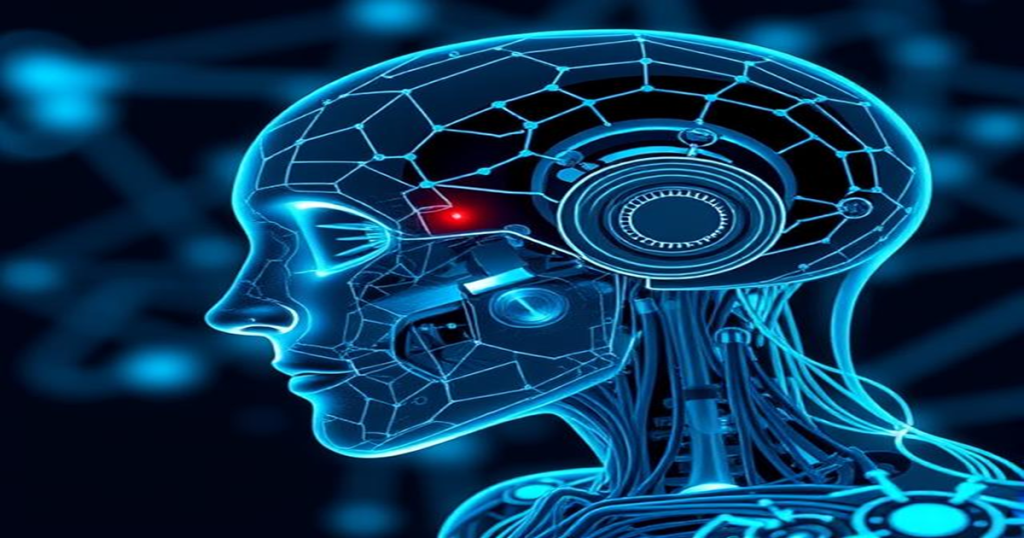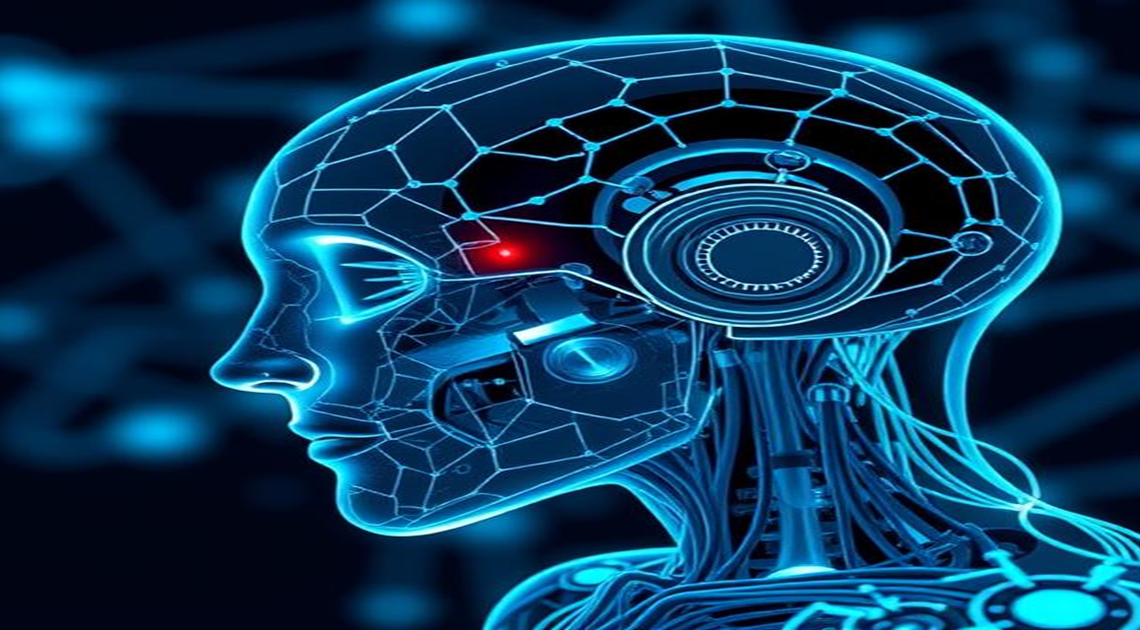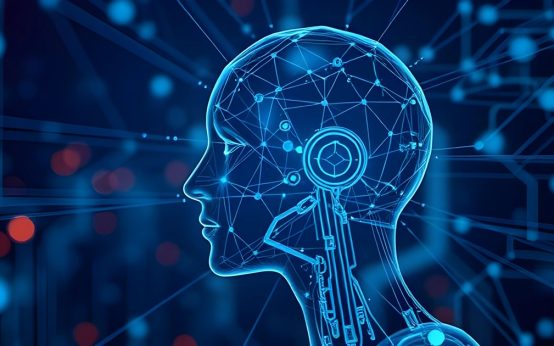The healthcare industry is undergoing a seismic shift, thanks to the rapid advancements in AI in healthcare. By 2025, artificial intelligence is set to transform how we diagnose, treat, and manage diseases, making healthcare more efficient, personalized, and accessible. From predictive analytics to robotic surgeries, AI is reshaping the medical landscape, offering innovative solutions to age-old problems. This article explores the key ways AI in healthcare is revolutionizing the sector and what it means for patients and providers alike.

The Role of AI in Modern Healthcare
Artificial intelligence is no longer a futuristic concept; it’s a present-day reality. In healthcare, AI technologies are being integrated into various aspects of patient care, administrative processes, and medical research. By leveraging machine learning, natural language processing, and computer vision, AI is helping healthcare professionals make faster, more accurate decisions.
The adoption of AI in healthcare is driven by its ability to analyze vast amounts of data, identify patterns, and provide actionable insights. This is particularly crucial in areas like early disease detection, personalized treatment plans, and operational efficiency. Let’s dive deeper into how AI is making a difference.
AI-Powered Diagnostics and Early Detection
One of the most significant contributions of AI in healthcare is its role in diagnostics. Traditional diagnostic methods often rely on manual analysis, which can be time-consuming and prone to human error. AI-powered tools, however, can process medical images, lab results, and patient histories with unparalleled speed and accuracy.
Imaging and Radiology
AI algorithms are revolutionizing radiology by analyzing medical images such as X-rays, MRIs, and CT scans. These algorithms can detect abnormalities like tumors, fractures, or infections faster than human radiologists. For instance, AI systems are already being used to identify early signs of breast cancer in mammograms, significantly improving early detection rates.
Predictive Analytics for Disease Prevention
Predictive analytics, powered by AI in healthcare, is enabling doctors to identify patients at risk of developing chronic conditions like diabetes or heart disease. By analyzing patient data, AI can flag potential health issues before they become critical, allowing for proactive intervention.
Personalized Medicine and Treatment Plans
Every patient is unique, and AI in healthcare is helping doctors tailor treatments to individual needs. Personalized medicine, also known as precision medicine, uses AI to analyze genetic, environmental, and lifestyle factors to create customized treatment plans.
Genomics and Drug Development
AI is accelerating genomics research by analyzing genetic data to identify mutations linked to diseases. This information is crucial for developing targeted therapies. Additionally, AI is streamlining drug discovery by predicting how different compounds will interact with the human body, reducing the time and cost of bringing new drugs to market.
AI-Driven Treatment Recommendations
AI systems can analyze a patient’s medical history, current symptoms, and treatment responses to recommend the most effective therapies. This is particularly useful in oncology, where AI helps oncologists choose the best chemotherapy or radiation options for cancer patients.
Enhancing Patient Care with AI
Beyond diagnostics and treatment, AI in healthcare is improving the overall patient experience. From virtual assistants to remote monitoring, AI is making healthcare more accessible and patient-centric.
Virtual Health Assistants
AI-powered chatbots and virtual assistants are providing patients with 24/7 access to medical information. These tools can answer questions, schedule appointments, and even remind patients to take their medications. For example, apps like Ada and Babylon use AI to offer symptom-checking services, helping users decide whether they need to see a doctor.
Remote Patient Monitoring
Wearable devices equipped with AI are enabling continuous health monitoring outside of clinical settings. These devices track vital signs like heart rate, blood pressure, and glucose levels, sending real-time data to healthcare providers. This is especially beneficial for managing chronic conditions and post-surgical recovery.
Streamlining Administrative Processes
Healthcare providers often grapple with administrative burdens that divert time and resources away from patient care. AI in healthcare is addressing this issue by automating routine tasks and improving operational efficiency.
Automating Medical Documentation
AI-powered speech recognition tools are transforming how medical notes are taken. Doctors can now dictate patient notes, which are automatically transcribed and organized into electronic health records (EHRs). This not only saves time but also reduces the risk of errors.
Optimizing Hospital Operations
AI is being used to manage hospital resources more effectively. For instance, predictive algorithms can forecast patient admission rates, helping hospitals allocate staff and beds efficiently. Similarly, AI-driven scheduling systems are reducing wait times and improving patient flow.
Ethical Considerations and Challenges
While the benefits of AI in healthcare are undeniable, its adoption also raises ethical and practical concerns. Issues like data privacy, algorithmic bias, and the potential for job displacement must be addressed to ensure AI is used responsibly.

Data Privacy and Security
AI systems rely on vast amounts of patient data, raising concerns about privacy and security. Healthcare organizations must implement robust data protection measures to safeguard sensitive information.
Ensuring Fairness and Transparency
AI algorithms can sometimes exhibit bias, leading to unequal treatment outcomes. It’s essential to develop transparent AI systems that are regularly audited for fairness and accuracy.
The Future of AI in Healthcare
By 2025, AI in healthcare is expected to become even more integrated into everyday medical practices. Emerging technologies like AI-powered nanobots, brain-computer interfaces, and advanced robotics hold the potential to further revolutionize the industry.
The key to unlocking AI’s full potential lies in collaboration between technologists, healthcare providers, and policymakers. Together, they can ensure that AI is used ethically and effectively to improve patient outcomes and transform healthcare delivery.
Conclusion
The impact of AI in healthcare is profound and far-reaching. From enhancing diagnostics to personalizing treatments and streamlining operations, AI is setting the stage for a more efficient and patient-centric healthcare system. As we move closer to 2025, the continued evolution of AI promises to bring even more groundbreaking innovations, making healthcare smarter, faster, and more accessible for all.
FAQs
AI algorithms analyze medical images and patient data to detect abnormalities and predict diseases with high accuracy, reducing the risk of human error.
While AI can assist doctors by providing data-driven insights, it is unlikely to replace them entirely. Human expertise and empathy remain crucial in patient care.
Key risks include data privacy concerns, algorithmic bias, and the potential for over-reliance on technology, which must be carefully managed.
AI analyzes genetic, environmental, and lifestyle factors to create customized treatment plans, ensuring patients receive the most effective therapies.
AI accelerates drug discovery by predicting how compounds interact with the human body, reducing the time and cost of developing new medications.

 The Ethics of Artificial Intelligence: What You Need to Know
The Ethics of Artificial Intelligence: What You Need to Know 